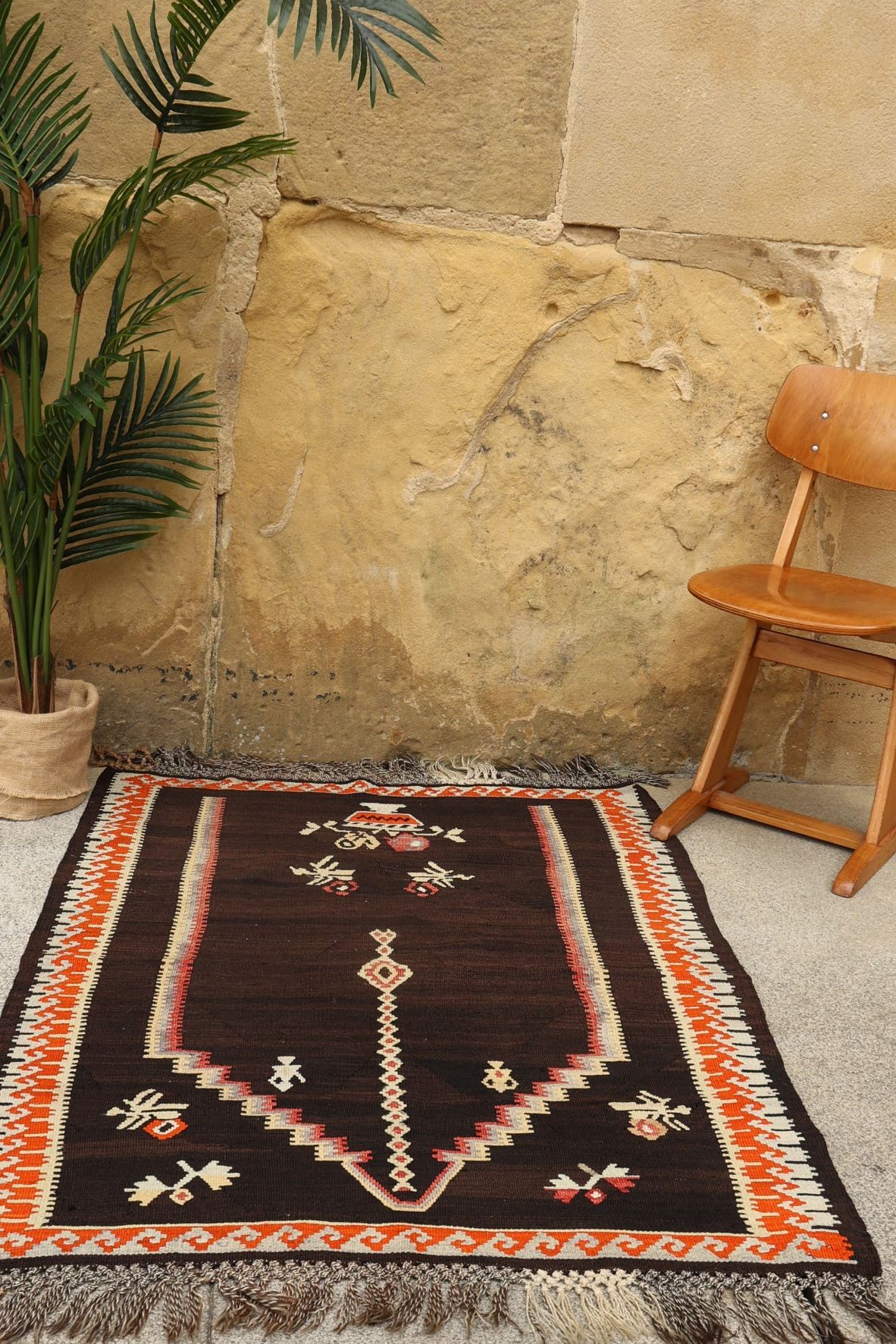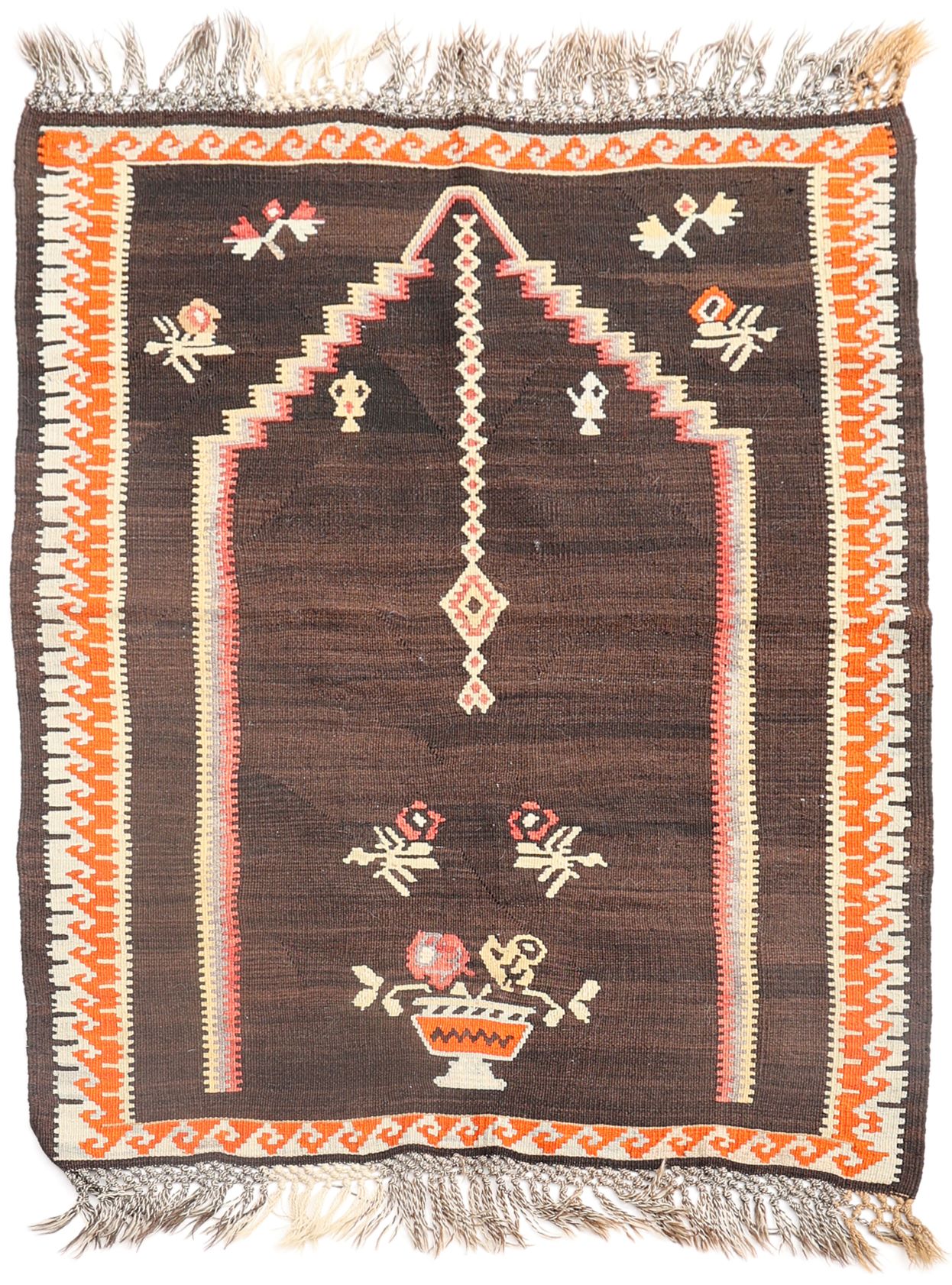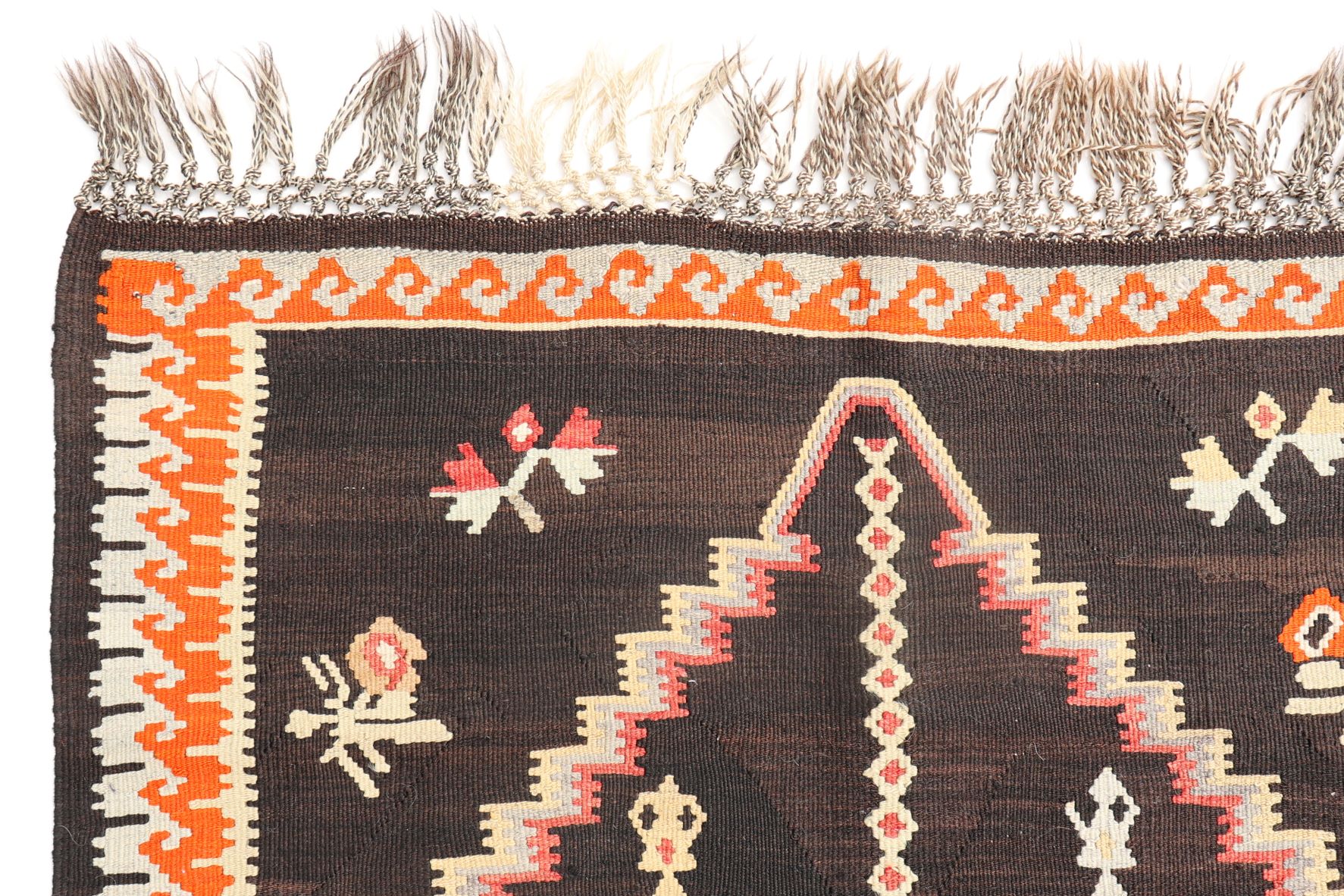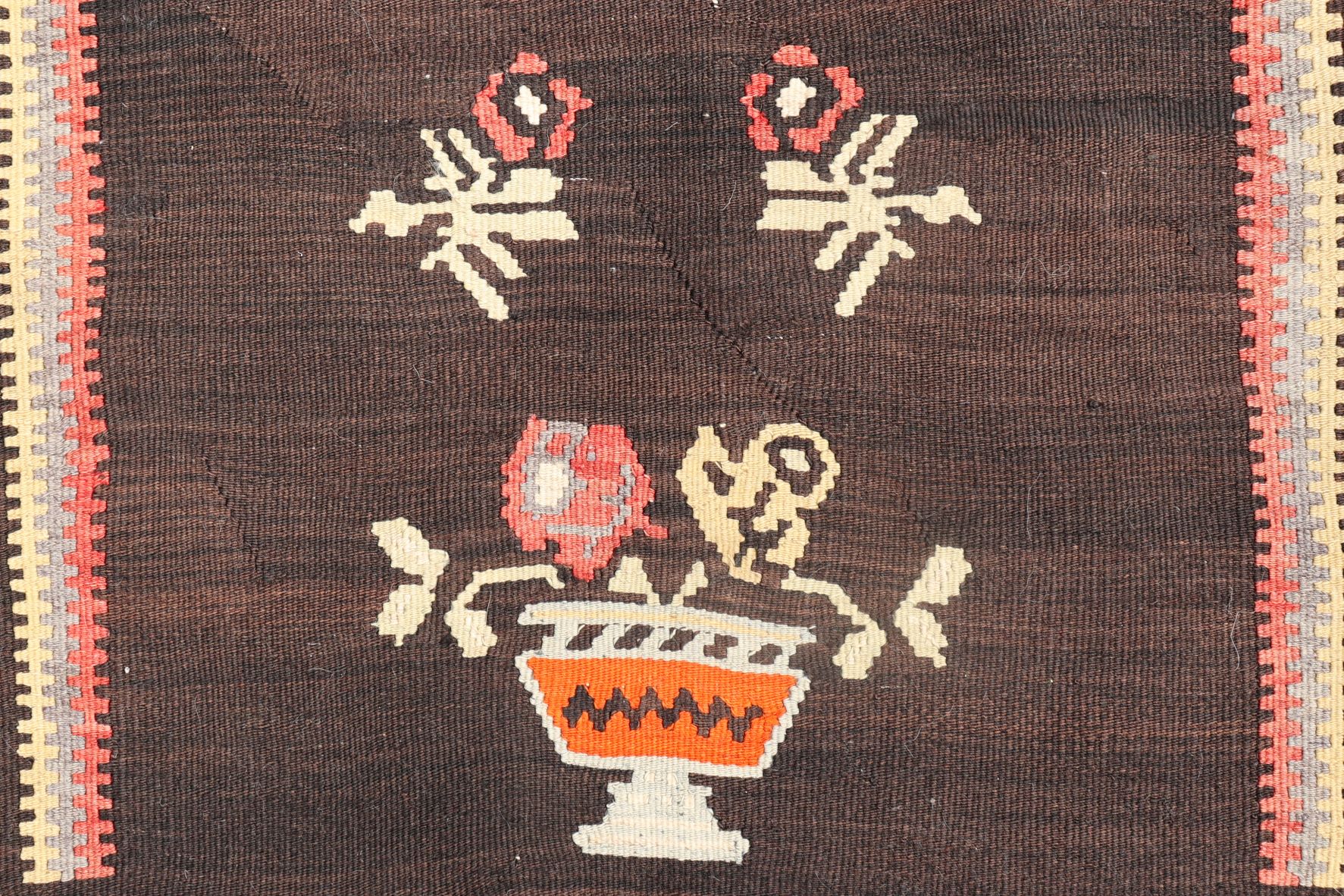450.00 €
In the case of this prayer kilim, the shape of the Mihrab has been outlined in a very schematic way, which contrasts with the elaborate design of the flowers, which shows parallels in their execution with the kilims of Armenia. The fringes on this kilim are braided and intact.
Material: 100% hand-spun sheep wool
Size: 135×100 cms
Origin: Kağızman, Turkey
Date of weaving: 1960s
Kilims or Gilims are flatwoven textiles with a woollen weft on a woollen, goat hair or cotton warp. There are many different techniques and designs. The weaver normally works within a tradition of techniques, motifs and designs specific to a particular area or ethnic group. The designs relate to her natural surroundings, protection, fertility and the harmony of family relationships. Each weaver adds something from her own creativity and sense of composition. Kilims are often woven as part of a marriage dowry and can be used to create many different objects like storage bags, horse-blankets, baby carriers, blankets and wall and floor coverings.
This vintage kilim was hand-woven on a simple loom by a village or nomadic weaver for her own use. Probably the weaver used wool from her own sheep. The wool was first cleaned, then hand-carded, hand-spun and finally dyed by hand, often using natural dye materials like roots, nuts, berries, fruits, flowers and plants. Kilims from the last quarter of the twentieth century mostly use synthetic dyes. This kilim would have taken many months to complete.
All our kilims selected in the country of origin and are professionally washed and restored before we import them directly from Iran, Turkey and Afghanistan. Natural patina and charming imperfections in design and colour (abrash) are highly valued characteristics of hand-woven kilims.
Kağızman is a city and a district in Kars Province, in the Eastern Anatolia region of Turkey, next to the Armenian Border.
In Islam, a prayer kilim is placed between the ground and the worshipper for cleanliness during the various positions of Islamic prayer. These involve prostration and sitting on the ground. A Muslim must perform wudu (ablution) before prayer, and must pray in a clean place.
For Muslims, when praying, a niche, representing the mihrab of a mosque, at the top of the mat must be pointed to the Islamic center for prayer, Mecca. All Muslims are required to know the qibla or direction towards Mecca from their home or where they are while traveling.
1 in stock
Additional information
| Weight | 2.5 kg |
|---|
Subscribe and receive the lastest news



